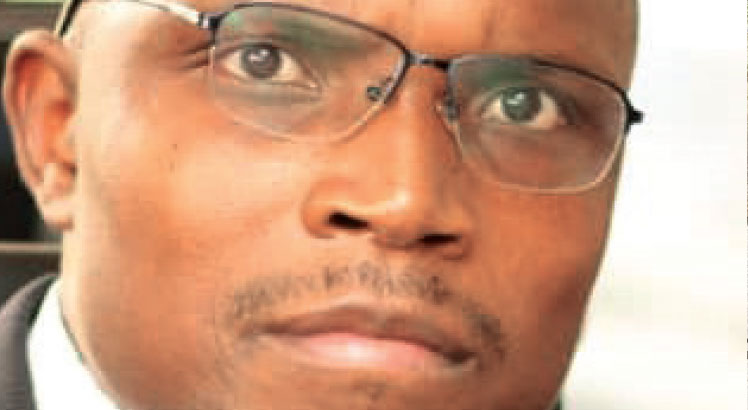MLS dares judges
Malawi Law Society (MLS) has asked the Judicial Service Commission (JSC) to allow it to directly engage with or impeach judges whose pace in handling cases is deemed questionable.
MLS on April 7 2021 wrote the JSC—which is chaired by Chief Justice Andrew Nyirenda—High Court and Malawi Supreme Court of Appeal registrar Gladys Gondwe and Attorney General (AG) Chikosa Silungwe, seeking an audience with them to discuss resolutions the Law Society passed at its annual general meeting held from March 23 to 26 2021.
Should the engagement with the judges concerned not yield the desired result, the new leadership of MLS, led by Patrick Mpaka and honorary secretary Chrispin Ngunde, is asking the JSC to allow the lawyers’ body to go for a final kill never tried before—commencement of impeachment proceedings of any judicial officer deemed non-compliant with competence requirements under the Constitution and the Judicial terms and conditions of service.

Reads part of the resolutions: “That if steps [mentioned] do not lead to any improvement in the pace of justice delivery, the society ultimately causes the commencement of impeachment proceedings against any judicial officer [concerned]…”
MLS’s tough decision has coincided with a debate where some legal minds are questioning why cases in the country’s Judiciary delay for years when judgement of a murder case against a United States white police officer Derek Chauvin was passed within 16 days.
The lawyer’s body states that the resolutions earmarked for discussion raise matters concerning the administration of justice that has been subject of administrative deliberations between respective institutions and previous leadership of MLS.
In an interview yesterday, Gondwe confirmed receiving the letter from MLS, saying the Chief Justice has since invited the Law Society leadership to a meeting on April 28 2021.
Ngunde also confirmed in a separate interview that the lawyers’ body passed the resolutions seeking to find ways of improving the pace and general credibility in the delivery of legal services to the people of Malawi.
He said: “We have since brought the resolutions to the attention of key authorities responsible for administration of justice and so far, we have received a warm reception.”
MLS has also confirmed that the leadership has been granted an audience with the AG on April 27 2021.
The Law Society has circulated to its membership the letter to the JSC on the resolutions, with some members saying lawyers are aware of the judges that work hard and those that are too lazy, slow or not committed.
Meanwhile, a veteran prosecutor, who once served as Director of Public Prosecutions (DPP), Kamudoni Nyasulu, said in an interview both lawyers and judges are interested parties and have their own share of the problem for delayed cases.
He said: “The Constitution demands efficiency and effectiveness in government. Parliament funds the Judiciary and prosecution agencies. Citizens and Parliament can demand accountability under the Public Finance Management Act.
“Citizens and Parliament can demand efficiency and effectiveness. When was the last time the citizens or Parliament demanded statistics from the Judiciary or prosecution institutions on their work?”
Nyasulu said the last annual report of the Judicial Department that he is aware of was published in 1969 for the year ended December 31 1967 which showed, among other statistics, that the High Court had tried 83 murder cases involving 115 persons.
On his part, Catholic University Dean of Law John Gift Mwakhwawa, who is also a practising lawyer, said problems regarding delayed cases or judgements, including murder cases, are multi dimensional.
He said the law, for example, requires that those prosecuted for murder must be represented by a lawyer, but the Legal Aid Bureau, where people are expected to get lawyers for free representation, faces capacity challenges due to poor funding.
Said Mwakhwawa: “On the other hand, we also have a Judiciary that is not well funded to hear murder cases and other cases in general, and it is also understaffed. That aside, we also have personal challenges to do with individual judges.
“To deal with this, we need all stakeholders to come together and get to the root of these problems. We must start asking questions as to who is the Judiciary accountable to. In my view, Judiciary must be accountable to Judicial Service Commission. And if things fail to work at that level, the Legal Affairs Committee of Parliament can come in.”
The lawyer feared that if Parliament could be made the first port of call, the Judiciary may think that Parliament is interfering with the Judiciary’s independence.
According to the MLS resolutions we have seen, they are asking the JSC to allow them to directly engage with any judicial officer with long outstanding backlog of rulings, judgements or other processes to appreciate their side of the story and approaches to dealing with the situation.
MLS also wants a constitutional review of Section 67 of the Labour Relations Act in light of Section 41 of the Constitution to cause removal of the requirement for panellists in the quorum of the Industrial Relations Court and cause the taking of all necessary consequential steps to enhance the pace of justice delivery at the IRC.
The Law Society further intends to devise mechanisms by which the workload of individual judges of the High Court and justices of the Supreme Court of Appeal as well as the turnover of files before each judicial officer is, on regular intervals, shared between the Registrar of the High Court, Supreme Court of Appeal and MLS.
Some legal experts in the debate on social media said they were impressed the Chauvin murder trial in the US, despite comparisons of resources in that developed nation and Malawi, took less than 16 days to prosecute and convict Chauvin.






One Comment